PROFESSIONAL ACHIEVEMENTS
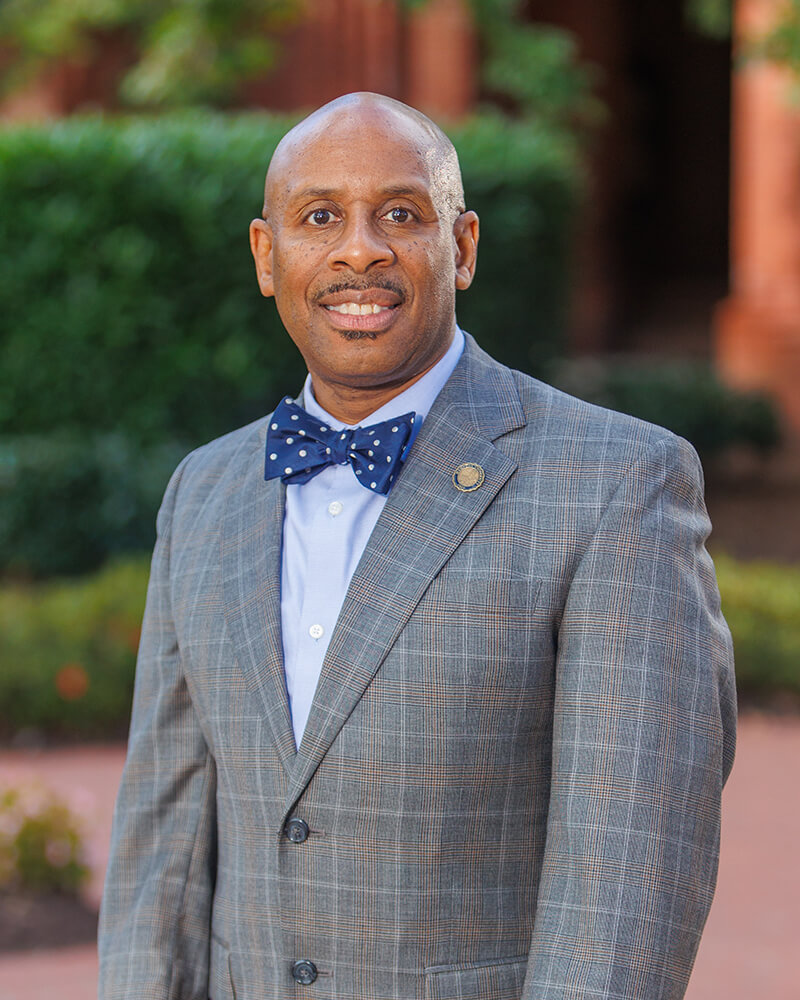
Accreditation
Wide-ranging experience and success with institutional effectiveness through regional and specialized accreditation agencies is another example of Dr. Hamilton’s achievement with reaffirmation of accreditation.
As the institutional liaison for the Southern Association of Colleges and Schools (SACSCOC), Dr. Hamilton led community colleges and four-year institutions through their decennial reaffirmation of accreditation reviews. This successful effort required him to assemble and create a cohesive group of administrators, faculty, staff, and students to review all aspects of academic, fiscal, and other campus operations. He served as a member of a SACSCOC Ad Hoc Committee on Substantive Change, worked as a SACSCOC peer-evaluator, and conducted student success workshops at SACSCOC annual meetings. Further, he participated in the implementation of a SACSCOC Quality Enhancement Plan and served as a liaison to the Middle States Commission on Higher Education (MSCHE), the Maryland Higher Education Commission (MHEC), the State Council of Higher Education in Virginia (SCHEV), and the Southern Regional Education Board.
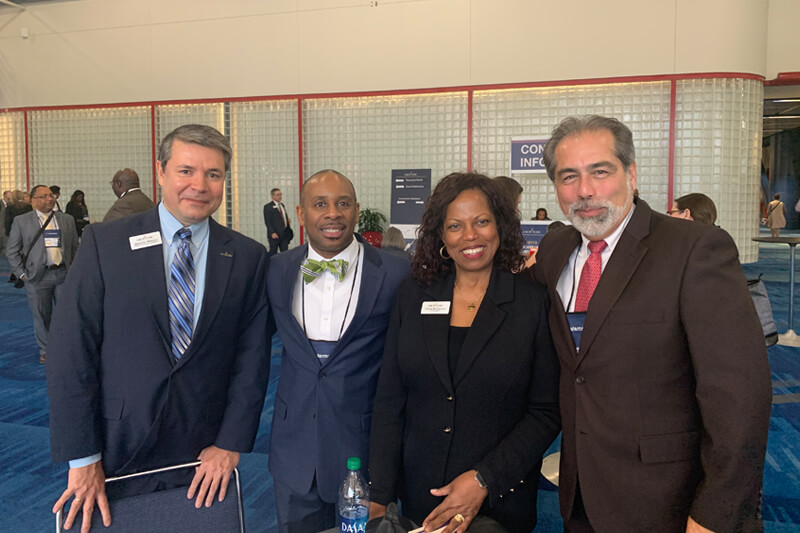
Academic Programs
Developing academic programs prepare students for emerging workforce needs and graduate studies is key for student success. Dr. Hamilton collaborated with faculty and staff, boards, internal and external stakeholders to develop academic programs that prepare students for success and for service.
Dr. Hamilton was instrumental in shaping strategic plans for academic affairs at several institutions. These plans establish goals for recruiting, retaining, and preparing students for success—especially underrepresented minorities, first-generation, and low-income students. The plan also supports faculty and community development and focuses on student enrollment and retention, academic programs, graduate studies, community engagement, and diversity.
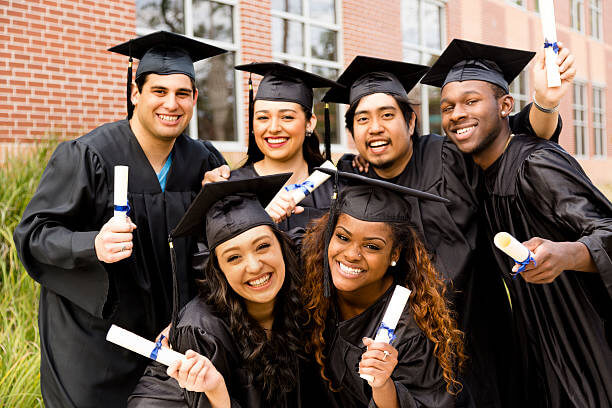
Partnerships and Community Networks
Building community networks to establish mutually beneficial partnerships is reflective of Dr. Hamilton’s creative, progressive, and innovative leadership. As Chief Academic Officer, he provided leadership to engineer a partnership with Norfolk city officials to develop an incubation center for business start-ups. This partnership provided practical knowledge and entrepreneurial experience for students and the community. Moreover, as Provost and Vice President for Academic Affairs, Dr. Hamilton led the creation of educational pilot programs that have reinforced meaningful local stakeholder partnerships in workforce development. For example, he managed the aspiring teacher education and nursing dual credit program, which was designed to increase the pool of diverse, highly skilled professionals in the Commonwealth. This pilot program provides high school students with an opportunity to earn college credits and certificates in nursing and education. To be developed, implemented, and maintained, these types of community partnerships require the input of a transparent, forthright, entrepreneurial leader with strong interpersonal relationship skills.
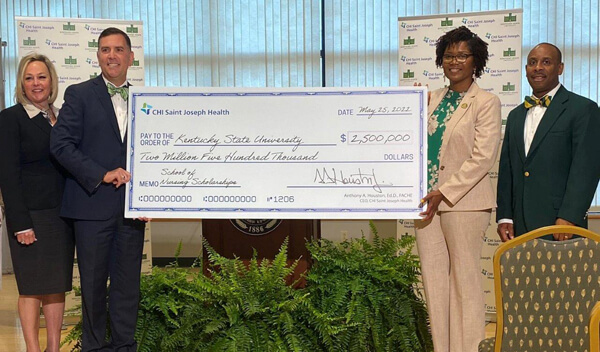

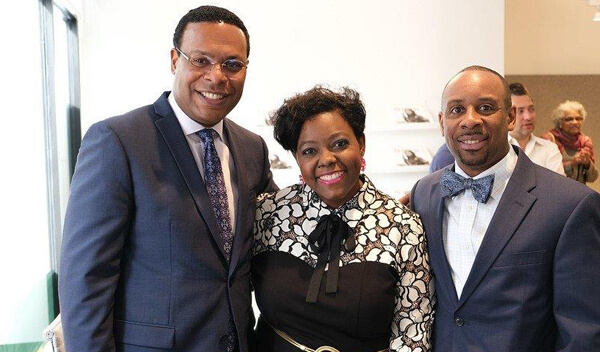
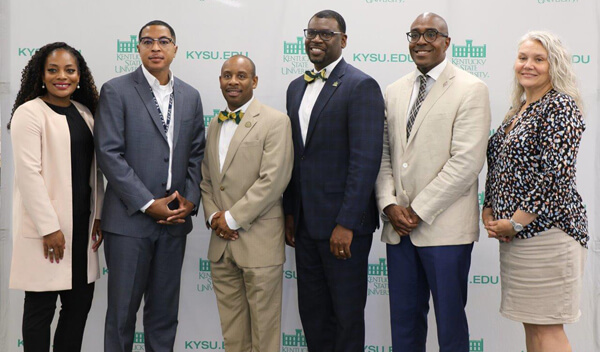
Faculty Affairs
Attracting quality faculty and then anticipating, accommodating, and planning for their needs influence student-centered teaching and learning. Access to highly qualified faculty and student-first environments is key for promoting student retention, persistence, and success.
Throughout his tenure as an executive administrator, Dr. Hamilton remains committed to empowering the faculty and staff to develop new academic programs and to conduct ongoing assessments of curricula for the continuous improvement of existing academic programs.
Dr. Hamilton has a proven track record for creating an environment that promotes faculty engagement and development. He has been a proactive advocate for faculty. At one institution, Dr. Hamilton created the Center for Teaching and Learning to encourage and support faculty research and to train faculty in best practices in the classroom and in remote instruction. In addition, He established a faculty mentoring institute to welcome and integrate new faculty into the university’s environment.
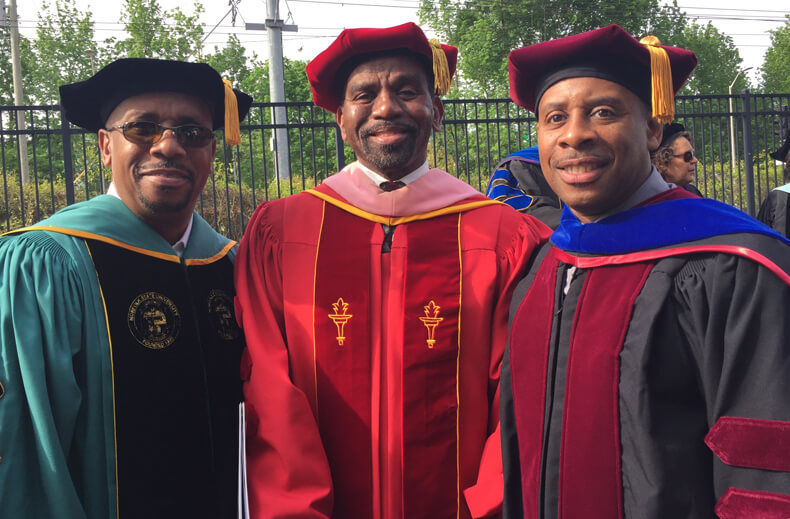
Dr. Hamilton has engaged with faculty and faculty governing bodies to ensure shared governance.
Enrollment and Student Success
Student retention and success often involve tailor-made processes that orient students to post-secondary education and offer services that are student friendly and easy to navigate. To that end, Dr. Hamilton pioneered university-wide “One-Stop” Student Success Centers. These centers consolidated student enrollment and student services along with a First-Year Experience office. He also implemented streamlined academic advising processes and individualized student development plans. These initiatives worked in tandem to support and increase student progress and retention.
To facilitate student success, Dr. Hamilton has also implemented a multi-faceted, comprehensive student-support programs that improved student transition, retention, and graduation rates. He provided student-focused, innovative, creative, and progressive leadership for several colleges and universities. For example, supported by scholarship on academic success models (e.g., Tinto’s Model of Student Retention), one of several student-support programs consist of the following retention and student success components:
- A four-week summer orientation program for prospective first-year undergraduate students
- A semester-long mentoring program pairing these same undergraduates with volunteer faculty and staff mentors from different university divisions
- An enhanced mentoring program matching first-year undergraduates with student liaisons (upperclassmen and women) from related academic majors and/or with career aspirations that reflect those of the undergraduates themselves.
The program was expanded to include tutoring services for specific courses. The data consisting of measurable increases in student participation over consecutive years, positive academic performance, and a high retention rate attest to the effectiveness of this student-support program.
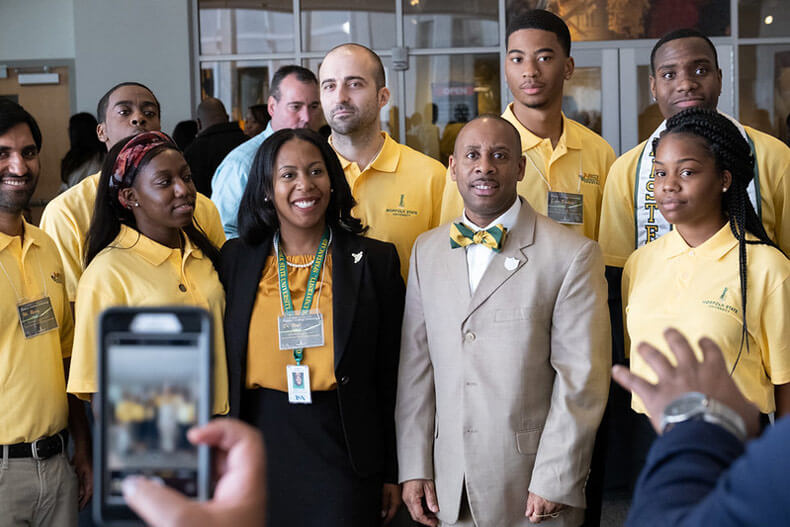

Financial Acumen
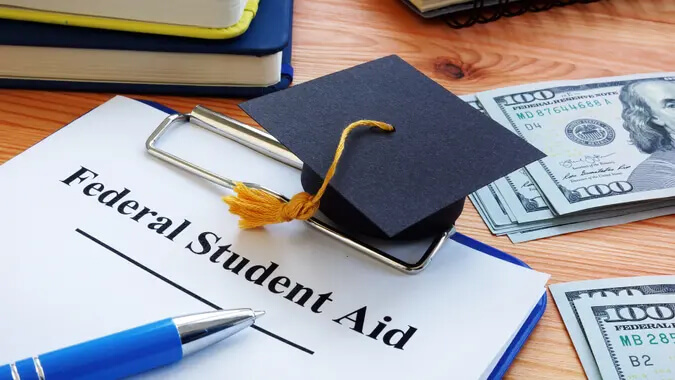
In the fundraising arena, Dr. Hamilton worked in traditional campaigns that engaged an entire campus in annual fundraising efforts to create a culture of giving throughout the campus community. Specifically, Dr. Hamilton led giving campaigns where individual departments and units competed for 100% participation in their unit or department. This approach emphasized the dollar amount a donor gave rather than the number of individuals who donated. Those units or departments that reached the goal were lauded throughout the campus. Because of this healthy competition, fundraising goals were met and often exceeded.
Dr. Hamilton secured and managed more than 3.1 million dollars in external funds to develop academic support systems. These funds were awarded by Wal-Mart, Lumina Foundation, and Department of Education (Title III funds). His expertise in fiscal management is reflected in his interactions with State coordinating Boards overseeing colleges and universities to create and oversee academic affairs policy, institutional performance indicators, and instructional cost-saving strategies that, among other things, eliminated under-enrolled courses, balanced faculty overloads, and reduced adjunct instructor budgets. These strategies ensure that targeted state appropriations benefit the institution.
Among many, Dr. Hamilton managed an annual state-appropriated budget to support pilot projects addressing issues of health education, wellness, and food insecurity in African American communities.
Diversity, Equity, and Inclusion
Diversity is a key element in higher education. Dr. Hamilton’s experience in promoting diversity has included overseeing the recruitment of students of different genders and ethnicities with differing socioeconomic backgrounds and cultural heritages, and from varied geographic locations. It was Dr. Hamilton’s priority to provide academic services and resources to accommodate diverse student populations, to support campus clubs and organizations to meet their social and cultural needs, to hire a diverse faculty to mentor and serve as role models for students, and to engage students in campus and community activities that promoted diversity, equity, and inclusion.

Leading with integrity, accountability, and vision for the future

To be an effective educational leader, leadership must be grounded in trust, transparency, and inclusion. Dr. Hamilton is committed to these values while working with internal and external university stakeholders to ensure that colleges and universities are viable institutions that continue to develop positive, healthy curricular and co-curricular experiences to support student success. Postsecondary institutions must remain an educational beacon for present and future generations who will benefit from a competitive, culturally rich education, where all cultures are embraced, respected, and valued and where contributions by all groups to the global community are recognized and appreciated. Dr. Hamilton strives daily to lead wisely and well, making informed decisions—influenced by the input, strengths, aspirations, and needs of all university constituencies.
